The Batman franchise, as we know it, would never have existed without Michael Uslan.
Indeed, the 1989 Tim Burton film, its sequels, the animated series and its spinoffs, the DC Animated Universe movies, and The Dark Knight Trilogy all exist thanks to one man's Batman-like determination, since age 14, to bring a dark and serious version of Gotham City onscreen.
This past weekend, at the 2012 Comikaze in Los Angeles, Michael Uslan signed copies of his memoir, The Boy Who Loved Batman, and spoke to attendees at two panels: Spotlight: Michael Uslan and Comics on Comics.
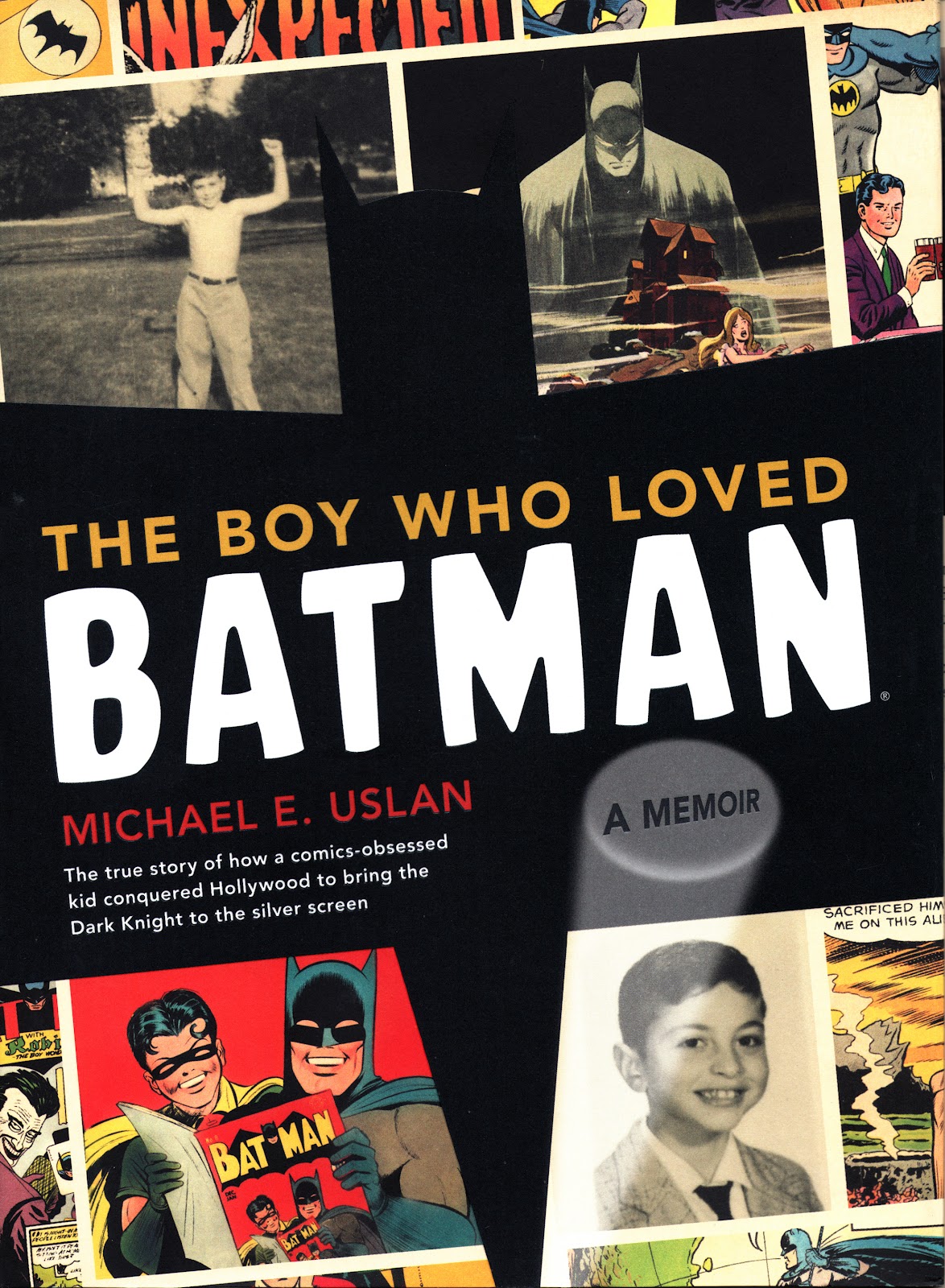
Spotlight on Michael Uslan
Mr. Uslan set the tone for his main panel when he chose to stand in front of his audience, instead of on stage, creating a more intimate and conversational atmosphere. During his one hour talk, he shared many of the anecdotes covered in his book, The Boy Who Loved Batman, but even those who have read the memoir, like myself, found it a treat to hear everything from the man in person.
After covering his childhood growing up as a comic book fanatic, Uslan shared his decision, at an early age, to work in comics and movies. "But what do you do when you're a blue collar kid from Jersey? You have no relatives in Hollywood or the comic book world, You don't know anybody in Hollywood or the comic book world. How do you get there from here? How do you make your dreams come true?"
For Uslan, the first step toward fulfilling his dream started at Indiana University. There, he fought faculty skepticism and condescension in order to teach the world's first college course on comic books. "Comic books are an art form. They're as indigenous to this country as jazz. You know it, I know it. They didn't know that. Comic books are contemporary mythology, it's American folklore. The ancient gods of Greece, Rome, and Egypt still exist. Only today, they wear spandex and capes."
To prove his point, Uslan gave the example, "The Greeks called him Hermes. The Romans call him Mercury. I call him The Flash."
Thanks to Uslan's marketing ingenuity, the young teacher's class caught the attention of the media nationwide. "I never taught one class that wasn't filled with television cameras." Soon, DC Comics heard about his efforts and, in appreciation for his promotion of the industry, offered him a job in their office in New York City, where he moved up from an intern to a comic book writer, contributing to titles like The Shadow and, of course, Batman.
But now that his dream of writing for comics had come to life, Uslan knew he had to pursue a new dream.
"I remembered back to a night when I was fourteen and a half years old. It was a cold January night in 1966. The Batman TV show was about to debut. I couldn't wait."
But when the premiere of the Adam West show began, his excitement took a different turn. "I was simultaneously thrilled and horrified by what I was seeing on TV. The opening animation kinda looked Bob Kane-ish. That was cool. It was in color. Somebody was spending a lot of money on these sets. The car was really cool. But I was horrified that the whole world was laughing at Batman. And that just killed me. He was a joke. And it really hurt. So at that moment, I had my own young Bruce Wayne vow moment. I vowed, somehow, someday, I was going to find a way to show the world the true Batman. The Batman created by Bob Kane and Bill Finger and expanded on by Jerry Robinson in 1939. A creature of the night stalking criminals in the shadows. And I would find a way, somehow, to erase, from the collective consciousness of the world culture, three little words: Pow, Zap, and Wham."
After attending law school, Uslan broke into the entertainment business and landed a job as an attorney for United Artists. On October 3, 1979, he and Benjamin Melniker bought the motion picture rights to Batman from DC Comics. The dream of that fourteen year old boy was finally going to come to life.
But getting a dark and serious Batman movie into theaters became a decade-long struggle. "I was turned down by every single studio in Hollywood. Not just turned down, I was told it was the worst idea that they had ever heard. They told me, 'Michael, you're crazy. You can't do serious comic book movies. Michael, you're nuts, you can't do dark superheroes.' "
But after years of rejection, Uslan's persistence paid off. "Everything changes in 1986. The studio says, 'You gotta see this young guy's movie. It's called Pee Wee's Big Adventure. We have the fine cut of it. We'd like to screen it for you.' I go in and see it. I come walking out, saying, 'I have never before seen a more creative merging of direction and art direction than I did with this. I would love to meet this guy.' They set up three lunches for me with Tim Burton.
"My job was to indoctrinate him into the world of Batman. And to provide him with materials to study and to learn from. So what was really important was giving him the stuff that I wanted him to see. But what was more important was keeping him away from the Bat-Mite stories, the Bat-Ape stories, the Batman Genie, the Superman-Batman of Planet X...those were cast aside.
"I gave him the original run of Detective Comics, starting with 27, before Robin came in. I gave him the first issue with Robin. I gave him Batman #1 introducing the Joker and Catwoman. And then I gave him Denny O'Neil and Neal Adams' run. I gave him Steve Englehart and Marshall Rogers' run, which was really highly stylized. By the end of the third lunch, I was convinced, this was the guy. This was the guy who was going to bring it home."
Burton would up end up directing one of the biggest movies of all time, making a cultural impact during the summer of 1989. "You couldn't walk through Times Square that summer, twenty-five steps without seeing someone in a Batman T-shirt or a Batman hat. Talk about marketing. For the first time in history, there were posters that didn't have the name of the movie on it. Just the iconic symbol in gold and black."
The 1989 Batman film ended up breaking box office records, spawning three sequels, and inspiring future superhero movies, including Christopher Nolan's reboot of the franchise, The Dark Knight Trilogy.
Further details of Uslan's journey and his experiences working with Burton and Nolan can be found in his book, The Boy Who Loved Batman, which is available at bookstores everywhere. [Read my review here - Paul]
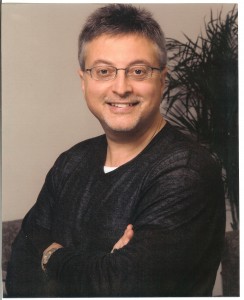
Comics on Comics
Mr. Uslan appeared again in Comics on Comics, a fun, comedic debate panel that featured him and actor Keith David. Here, fans had another opportunity to learn new tidbits from the executive producer.
From Newmar to Hathaway: Uslan's Thoughts on The Catwomen
When asked to compare Michelle Pfeiffer's Catwoman with Anne Hathaway's, Uslan openly shared his opinion on all of the actresses who played Selina Kyle. "There have been some of the really most wonderful, different, and interesting portrayals of Catwoman from the 1960s all the way through. Julie Newmar's Catwoman- thank you, Julie Newmar, you introduced me to puberty.
"And then Lee Meriwether came into it. An incredible lady and she was the star of one of my favorite TV series growing up called Time Tunnel.
"And then, Eartha Kitt, who brought this real catlike approach to Catwoman. Very very sexy and threatening at the same time.
"I thought Michelle Pfeiffer did an incredible, sexy, wonderful job of it and that was my favorite part of Batman Returns. That was, to me, one thing that really made the movie work well.
"But I think that Anne Hathaway just stole the show. Her Catwoman is an amazing portrayal. It caught everybody short. It was like the thing with Heath Ledger where everyone was going, 'He can't be the Joker. He's not the kind of actor who could play the Joker.' And we got a lot of that brushback when word got out that Anne was going to do it. But you look at it now and I see, in part of her potrayal, Judy Garland. A little bit of Audrey Hepburn. She's just doing all kinds of amazing stuff. I would love to see more of that. That was great."
Panelist Jonathan London asked if there was "room for any piece of the Nolanverse, like Anne Hathaway's Catwoman, to survive in any form in the future." Uslan jokingly dodged the question by asking about the Dodgers, but after a few laughs, teased to the audience, "Stay tuned."
Fantasy Fan Ideas
Michael Uslan also opened up about having his own fanboy fantasy Batman movies. "As the true fanboy, if there were three directors that I would love, in the greatest of all ideas, to see their versions of Batman today, it would be number one, Orson Welles, number two, Max Fleischer, and number three, Fritz Lang."
Later in the panel, Uslan refuted the rumor that Welles had been planning to direct a Batman movie, but shared that his other dream director, Max Fleischer, had plans to do a "black-and-white series of Batman films," after having finished his Superman cartoons, but World War II ruined his plans. The details of Uslan's discovery about Fleischer can be found in The Boy Who Loved Batman.
Uslan went on to address that he also relates to fanboy fantasies of different Batman films. Using Batman Beyond as an example, he called the animated series "a great, great premise of character" and said, "As a fanboy only, not as a producer connected to the movies, sometimes I wonder, 'Man, what would it be like to see Bruce Wayne in his eighties played by Clint Eastwood?' " Commenting also on The Dark Knight Returns, Uslan, again clarifying his thoughts to be "as a fanboy and not as a producer," shared that he's also realized, "Oh my God. Michael Keaton and Jack Nicholson are now exactly the right age for The Dark Knight Returns."
Meeting Cesar Romero
Actor Keith David shared that he loved Heath Ledger's performance as The Joker in The Dark Knight, but admitted, "I still love Cesar Romero."
Uslan shared, "I met him at the premiere of our first movie in 1989. He was there with Burgess Meredith and a bunch of the villains from the Batman show. I had a chance to talk to him about it and the first thing I said to him was, 'Why didn't you shave the moustache?! Mr. Romero, I'm a huge fan of yours. I respect you tremendously, but that irked the !@#$ out of me.' He was great, he was really really great, he goes, 'I was not going to touch that moustache.' He spent too much time perfecting it. And he wasn't going to [shave] it for a TV show."
Uslan acknowledged, however, that not all franchises should follow Nolan's example. "Hollywood has to understand, just because Batman is successful, done in a dark and gritty manner, does not interpret to the point where they [can] say, 'Okay, we get it. All superheroes must be dark and gritty.' "
Using an example of a non-dark and gritty superhero movie, Uslan shared, "I loved the first Iron Man. I loved that movie, I saw it twice opening weekend. It proves you can do a light and fun approach and still have it respect the integrity of the character, have it work, and have people go to see it and buy into it and suspend their disbelief and take you away."
I had the honor of speaking, one-on-one, with Michael Uslan directly after this panel, where he shared his thoughts on The Dark Knight Trilogy and more. Stay tuned for the interview here at Batman Online!
comments powered by Disqus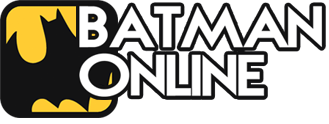
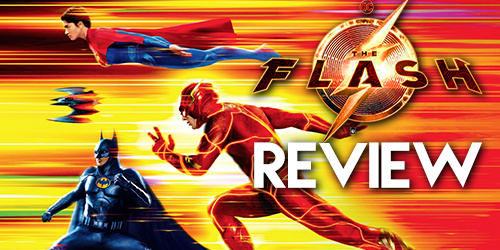
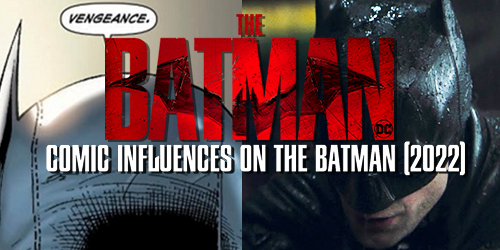
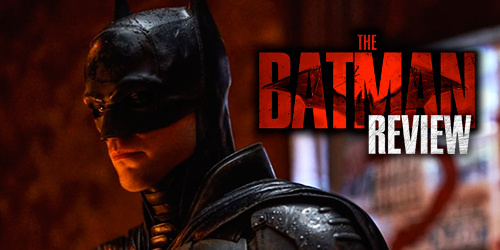

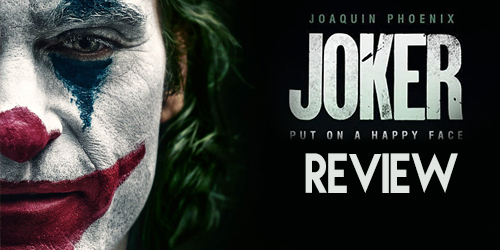
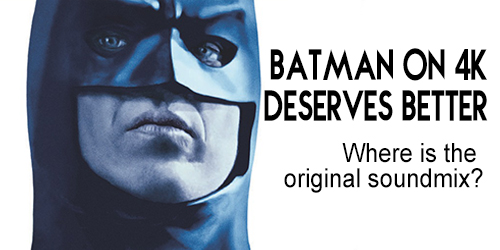
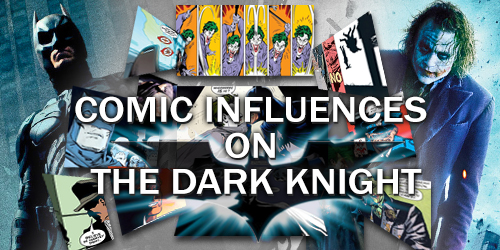
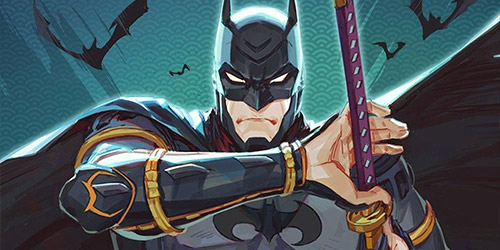
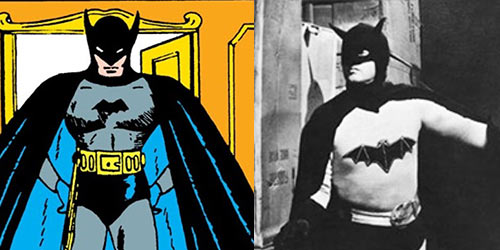
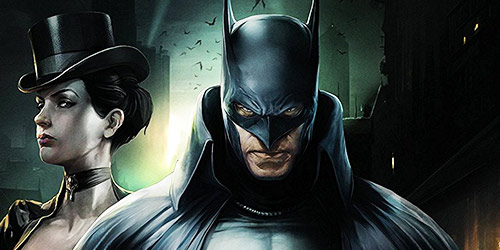
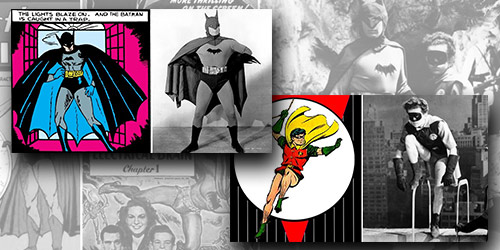
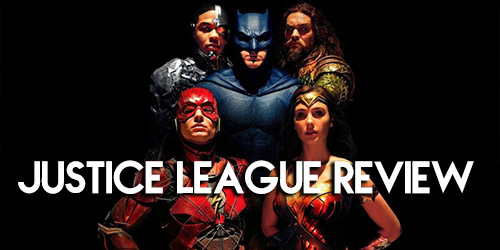
by thecolorsblend
by thecolorsblend
by Silver Nemesis
by Silver Nemesis
by The Dark Knight
by thecolorsblend
by Silver Nemesis
by Silver Nemesis
by Silver Nemesis
by Silver Nemesis